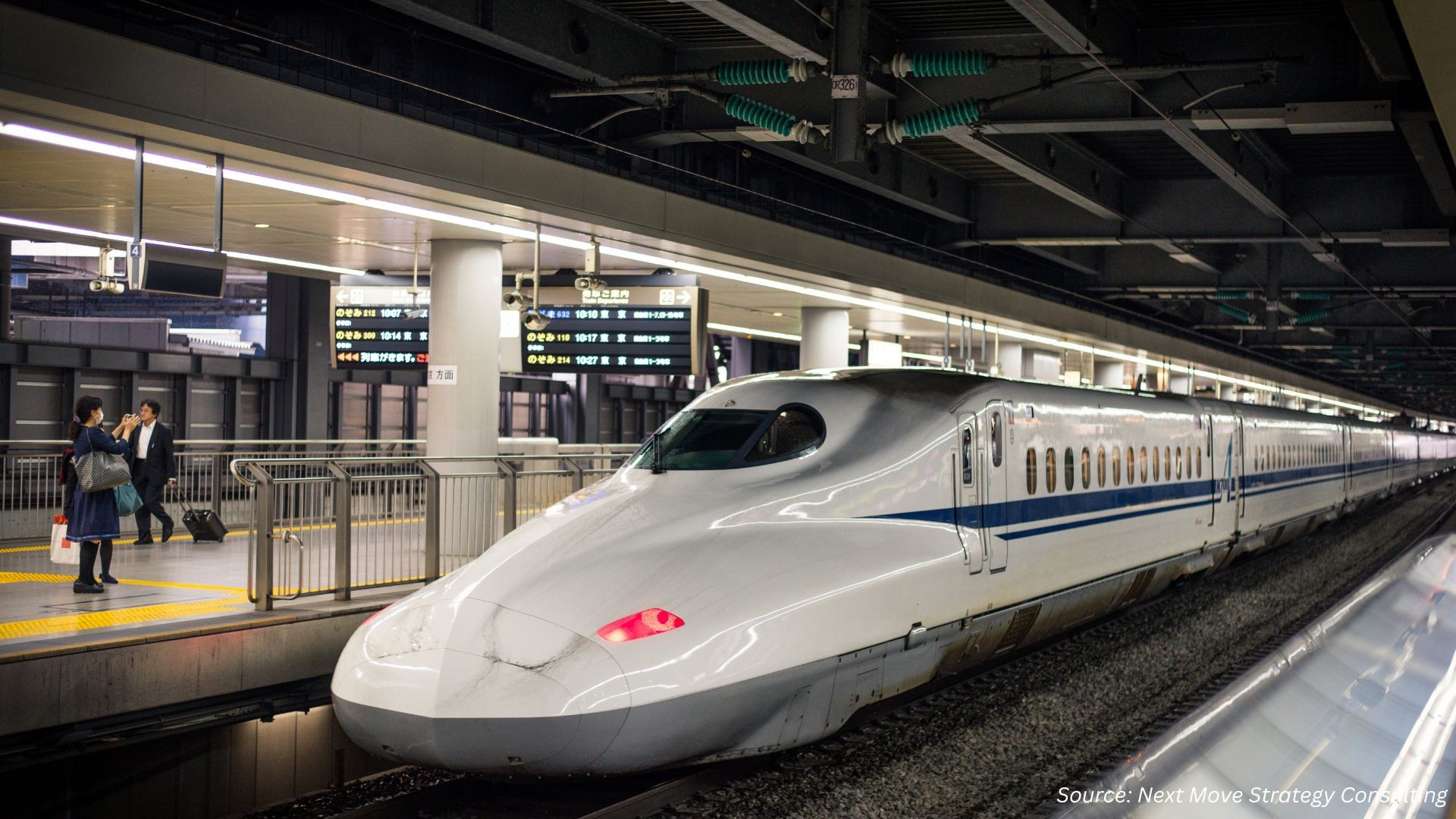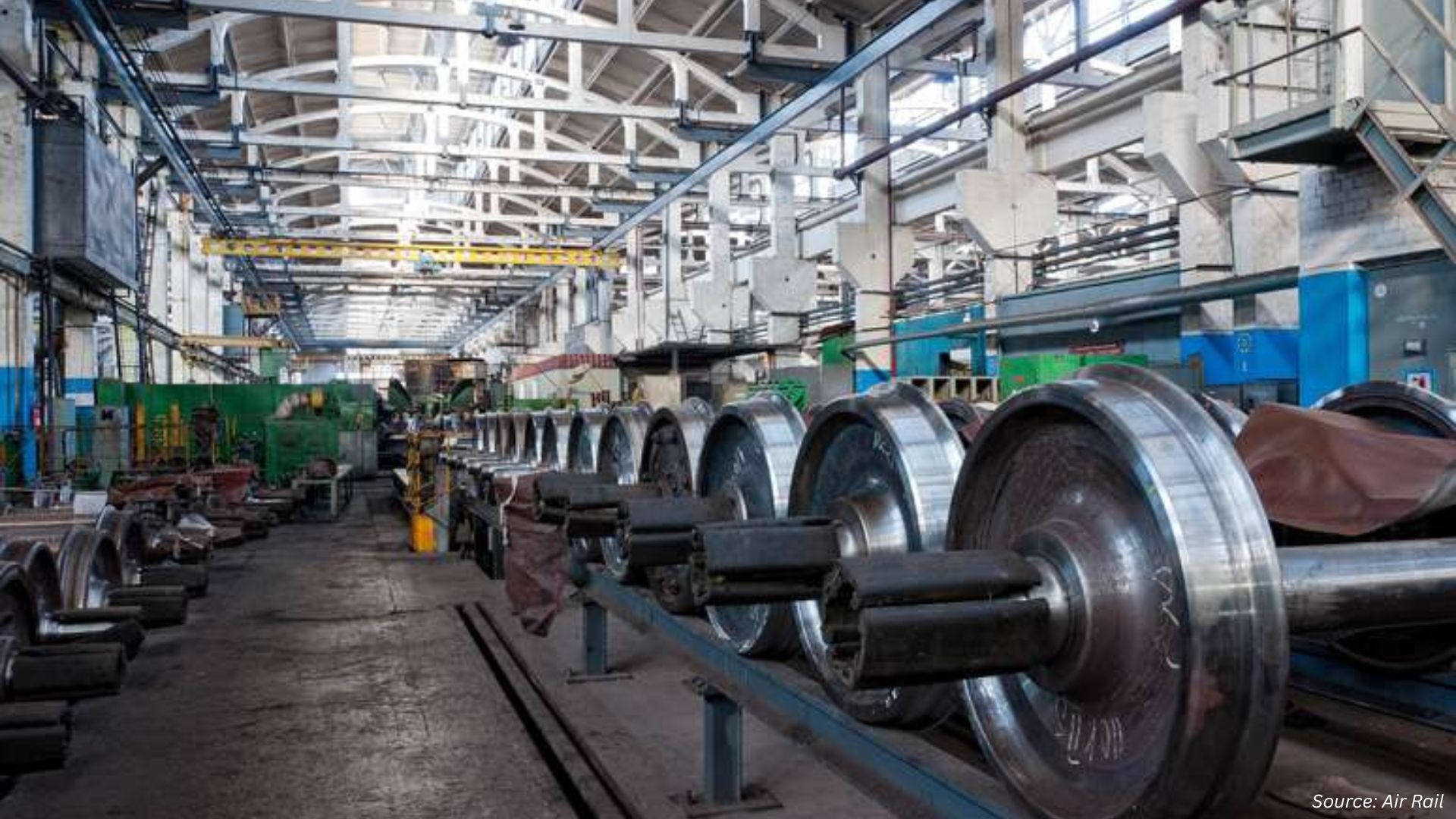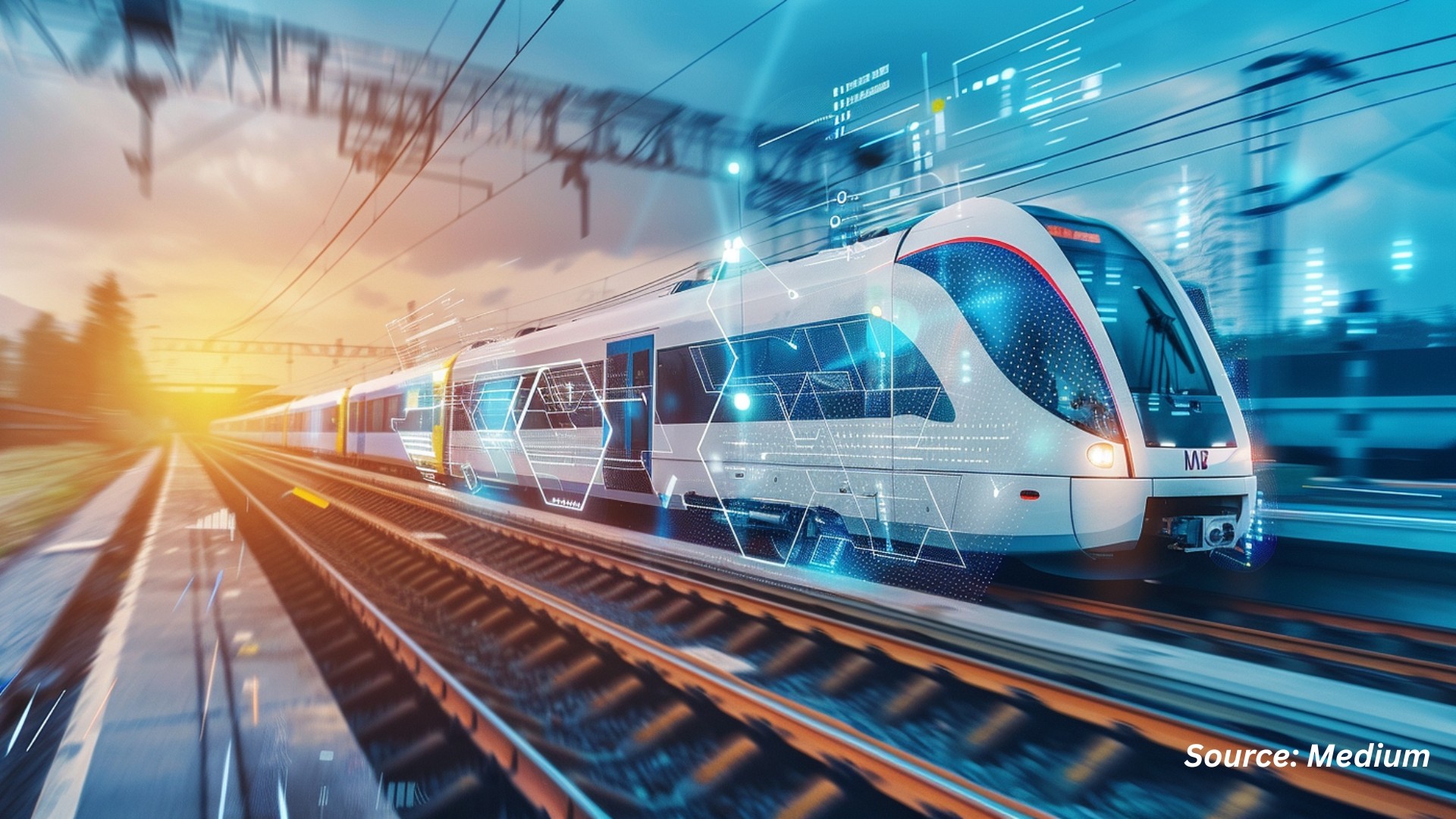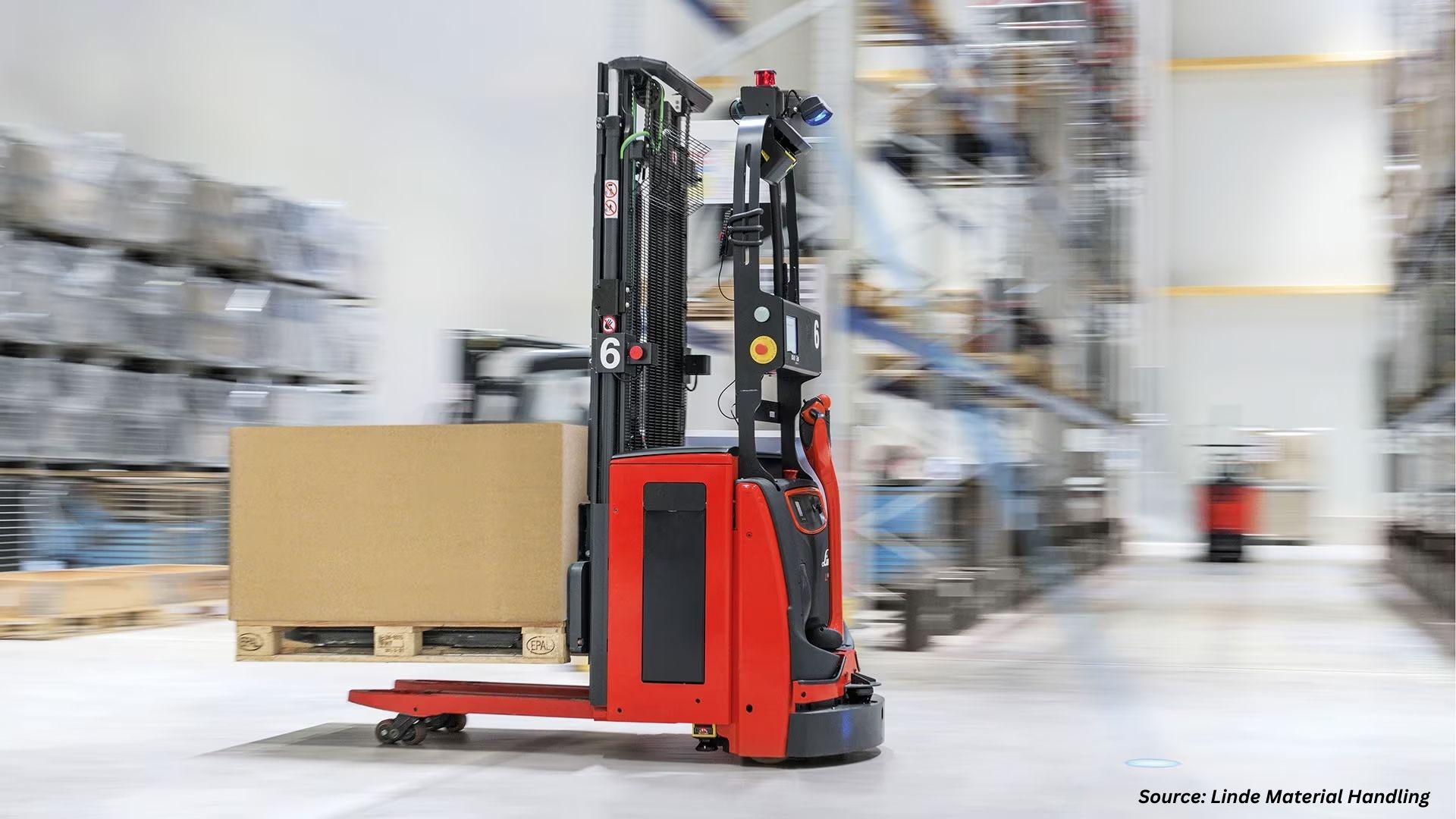Electric Trains Market: Innovations in Slovakia and New Zealand
Published: 2025-09-19

The Electric Trains Market is experiencing significant advancements, with notable developments in Slovakia and New Zealand. These initiatives highlight the global shift towards sustainable and efficient rail transportation.
ZSSK Expands Fleet with New Stadler KISS Double-Decker Trains
Slovak Railways (ZSSK) has confirmed the purchase of two more KISS electric trains from Stadler, exercising an option included in the contract signed in April this year.
The double-deck, high-capacity trains are scheduled to begin service on the Bratislava–Žilina main line during the 2026/2027 timetable.
This investment will be largely financed through European funds provided under the Recovery and Resilience Plan (RRP).
ZSSK Expands Stadler KISS Fleet with Additional Investment
The initial order for two double-deck trains was placed in April this year, bringing the overall value of the project for all four units to around €100 million ($117.05 million).
Stadler’s KISS trains are already operating on the Bratislava–Nové Zámky and Bratislava–Trenčín/Púchov routes, strengthening regional rail connectivity.
Commenting on the expansion, ZSSK CEO Peter Helexa stated: “The renewal of the vehicle fleet is one of the key pillars of our strategy, and the addition of further Stadler KISS units marks an important milestone in this effort.”
New Double-Decker Trains to Enhance Comfort, Efficiency, and Accessibility
The upcoming electric double-decker trains will be equipped with advanced technologies aimed at improving both passenger comfort and operational performance. Designed for speeds of up to 160 km/h, the units will provide fast and efficient travel on key routes.
Each train will accommodate at least 611 passengers, including 582 standard first- and second-class seats along with 29 folding seats.
In addition to their high seating capacity, the trains will be built with energy efficiency in mind. A low-floor design will ensure easy boarding and accessibility for all travelers, including those with reduced mobility.
To further enhance the passenger experience, the new units will feature modern information systems with digital displays and audio announcements, supporting better orientation and comfort throughout the journey.
Key Highlights:
-
Fleet Expansion and Investment: Slovak Railways (ZSSK) has exercised an option to purchase two additional Stadler KISS double-deck electric trains, raising the total order to four units valued at around €100 million ($117.05 million), with funding supported by the Recovery and Resilience Plan (RRP).
-
Deployment and Connectivity: The new trains will enter service on the Bratislava–Žilina main line during the 2026/2027 timetable, complementing existing KISS operations on the Bratislava–Nové Zámky and Bratislava–Trenčín/Púchov routes to strengthen regional connectivity.
-
Passenger Comfort and Efficiency: Each unit will seat over 600 passengers, feature low-floor accessibility, energy-efficient design, and modern passenger information systems, ensuring faster, more comfortable, and sustainable travel experiences.
Alstom to Deliver New Zealand’s First Battery-Electric Commuter Trains
Alstom, a global leader in sustainable mobility, has signed a €538 million (NZD $1.065 billion) contract with the Greater Wellington Regional Council. The agreement includes the design, manufacture, and delivery of 18 Adessia Stream B battery-electric multiple unit (BEMU) trains, each consisting of five cars, along with 35 years of FlexCare Perform fleet maintenance.
These trains will mark New Zealand’s first BEMU commuter fleet, specifically designed to run on non-electrified sections of the Wellington rail network, including the Wairarapa and Manawatu lines, enabling fully emission-free travel.
Alstom to Build New Zealand’s First BEMU Fleet at Savli Facility
The new battery-electric trains will be produced at Alstom’s Savli plant in India, gradually replacing the aging diesel locomotives scheduled for retirement in 2028 and 2029. To ensure long-term performance, Alstom will also manage a new maintenance facility in Masterton, established by the Greater Wellington Regional Council. This site will be equipped with advanced technology to support battery upkeep and maintain optimal fleet efficiency.
Highlighting the significance of the project, Ling Fang, President of Alstom’s Asia-Pacific region, stated: “This project represents a major milestone in Alstom’s dedication to advancing sustainable mobility. We are proud to support New Zealand’s transition to cleaner transport with our zero-emissions rail solutions.”
Key Highlights:
-
Major Contract and Fleet Introduction: Alstom has secured a €538 million (NZD $1.065 billion) contract with the Greater Wellington Regional Council to design, build, and deliver 18 five-car Adessia Stream B battery-electric multiple unit (BEMU) trains, along with 35 years of FlexCare Perform maintenance.
-
Sustainable and Emission-Free Travel: These trains will be New Zealand’s first BEMU commuter fleet, operating on non-electrified sections of the Wellington network, including the Wairarapa and Manawatu lines, enabling fully emission-free journeys.
-
Manufacturing and Maintenance Infrastructure: The trains will be built at Alstom’s Savli facility in India, replacing diesel locomotives retired in 2028–2029, while a new Masterton maintenance facility will support battery upkeep and ensure optimal fleet performance.
Market Impact of Recent Electric Train Developments
Recent investments in electric train fleets in Slovakia and New Zealand are set to have significant effects on the global and regional rail markets. These developments present a combination of positive outcomes while posing manageable challenges that stakeholders must consider.
Positive Market Impacts
The introduction of modern electric and battery-electric trains is largely favorable for market growth, operational efficiency, and sustainability.
Key Benefits Include:
-
Enhanced Passenger Experience:
-
Increased seating capacity and improved comfort in Slovakia’s Stadler KISS double-deck trains.
-
Modern digital displays and low-floor accessibility improve usability for all passengers.
-
-
Operational Efficiency:
-
High-speed capabilities (up to 160 km/h) on Slovak routes reduce travel times.
-
Battery-electric units in New Zealand enable service on non-electrified lines, reducing reliance on diesel locomotives.
-
-
Sustainability and Emission Reduction:
-
New Zealand’s BEMU trains support fully emission-free travel, aligning with climate and sustainability goals.
-
Energy-efficient designs in both markets reduce overall operational costs and carbon footprint.
-
-
Strengthened Regional Connectivity:
-
Slovakia’s fleet expansion strengthens connectivity on key routes like Bratislava–Žilina, Bratislava–Nové Zámky, and Bratislava–Trenčín/Púchov.
-
Enhanced rail networks improve accessibility for commuters and long-distance travelers.
-
-
Investment Confidence:
-
European Recovery and Resilience Plan (RRP) funding supports Slovakia’s fleet expansion.
-
Large-scale contracts like Alstom’s NZD $1.065 billion project signal robust investor confidence in sustainable rail infrastructure.
-
Conclusion:
These positive impacts demonstrate that strategic investments in modern electric train fleets not only improve service quality but also reinforce sustainable growth in the rail sector.
Potential Market Challenges
Despite the overwhelmingly positive outcomes, certain factors could temporarily impact market dynamics:
-
High Capital Expenditure:
-
Fleet acquisitions require substantial upfront investment, which may strain public budgets or financing strategies.
-
-
Implementation and Maintenance Risks:
-
Long-term maintenance commitments, such as Alstom’s 35-year FlexCare Perform contract, require robust infrastructure and skilled workforce.
-
-
Integration with Existing Networks:
-
Introducing new train models may require upgrades to existing rail infrastructure, signaling systems, and staff training programs.
-
-
Regional Market Disparities:
-
While Europe and New Zealand benefit from government funding and strategic planning, other regions may face slower adoption due to budget constraints or limited electrified rail infrastructure.
-
Conclusion:
While challenges exist, the overall market impact remains positive, with investments likely to accelerate modernization, efficiency, and sustainability in rail transport.
Next Steps
-
Monitor Technological Advancements: Stay informed about emerging technologies in electric train systems to understand their impact on the market.
-
Evaluate Investment Opportunities: Consider opportunities in companies involved in the development and manufacturing of electric and battery-electric trains.
-
Advocate for Sustainable Transportation: Support policies and initiatives that promote the adoption of zero-emission rail systems.
-
Engage with Industry Developments: Participate in industry conferences and forums to network and gain insights into future trends.
By staying informed and engaged, stakeholders can contribute to and benefit from the ongoing transformation in the electric trains market.
About the Author
 Karabi Sonowal is an experienced SEO Executive and Content Writer in digital marketing. She excels in SEO, content creation, and data-driven strategies that boost online visibility and engagement. Known for simplifying complex concepts, Karabi creates impactful content aligned with industry trends.
Karabi Sonowal is an experienced SEO Executive and Content Writer in digital marketing. She excels in SEO, content creation, and data-driven strategies that boost online visibility and engagement. Known for simplifying complex concepts, Karabi creates impactful content aligned with industry trends.
About the Reviewer
 Debashree Dey is a skilled Content Writer, PR Specialist, and Assistant Manager with expertise in digital marketing. She creates impactful, data-driven campaigns and audience-focused content to boost brand visibility. Passionate about creativity, she also draws inspiration from design and innovative projects.
Debashree Dey is a skilled Content Writer, PR Specialist, and Assistant Manager with expertise in digital marketing. She creates impactful, data-driven campaigns and audience-focused content to boost brand visibility. Passionate about creativity, she also draws inspiration from design and innovative projects.
















Add Comment